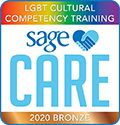Reporting Abuse in Long-Term Care Facilities
There are several entities that will accept a report of suspected abuse, neglect or exploitation of persons living in a long-term care facility.
the Regional Ombudsman located in the region or county of the long-term care facility or
the Senior HelpLine or
the Illinois Department of Public Health (see information below) or
Healthcare and Family Services for Supportive Living Facility Complaints (see information below) or
the Illinois State Police Medicaid Fraud Unit (see information below).
Regional Ombudsmen Response
Ombudsmen are not emergency responders. If you feel that the person is in immediate danger, please call 9-1-1. After contacting the local office, the Ombudsman will explain options of reporting abuse, residents' rights, and the Ombudsman protocol for responding to complaints.
Processing complaints made by or on behalf of residents is the highest priority service of the Program. The Senior HelpLine will provide the contact information for the Regional Ombudsman.
Illinois Department of Public Health
The Illinois Department of Public Health operates a Central Complaint Registry to record and investigate complaints regarding nursing facilities, hospitals and home health agencies.
The Central Complaint Registry (Nursing Home Hotline): 1-800-252-4343, 1-800-547-0466 (TTY). Due to the high volume of calls, it is highly recommended that you submit complaints electronically by visiting the Office of Healthcare Regulation (OHCR) Portal.
Healthcare and Family Services - Hotline information and Residents' Rights for Residents of Supportive Living Facilities
Complaint Hotline: 1-800-226-0768, Monday - Friday 8:00 a.m. - 5:00 p.m.
*Calls will be kept confidential.
Illinois State Police Medicaid Fraud Control Unit
The Illinois State Police Medicaid Fraud Control Unit also investigates long-term care facility complaints related to Medicaid Fraud, Abuse and/or Neglect. Medicaid Fraud can take on a variety of appearances. From purely a fraud perspective, it can be described as any effort to defraud the Medicaid system by billing for services not delivered, or under-delivered. It can also manifest itself in cases where physical abuse or neglect has occurred. This includes, but is not limited to, battery, sexual assault and failure to deliver services or medications. In either case, in order for there to be Medicaid Fraud, Medicaid money must be involved.
To report Medicaid Fraud, Abuse or Neglect, call 1-888-557-9503.
Other Web sites related to the Long-Term Care Ombudsman Program
- Abuse in Nursing Homes, National Center on Elder Abuse
- For Patients, Illinois State Medical Society
- Illinois Citizens for Better Care - An advocacy and service organization that works to improve the care and quality of life of Illinois nursing home residents.
- Illinois Pioneer Coalition – provides long-term care settings with the education and tools needed to effect deep culture change, thereby transforming long-term care settings into real homes and improving the quality of life for individuals and staff in various settings throughout Illinois.
- The National Consumer Voice for Quality Long Term Care (formerly NCCNHR) – provides information and leadership on federal and state regulatory and legislative policy development and models and strategies to improve care and life for residents of nursing homes and other long term care facilities.
- National Long-Term Care Ombudsman Resource Center – provides support, technical assistance and training to the 53 State Long Term Care Ombudsman Programs.
- Pioneer Network: Changing the Culture of Aging for the 21st Century.
- When You Can't Go Home Again: Using Consumer Law to Protect Nursing Facility Residents, (National Consumer Law Center)
- Paraprofessional Healthcare Institute (PHI): protects the rights of low-income older adults through advocacy, litigation, and education and counseling of local advocates.
- National Senior Citizens Law Center: protects the rights of low-income older adults through advocacy, litigation, and education and counseling of local advocates.
- National Center on Elder Abuse: serves as a national resource center dedicated to the prevention of elder mistreatment.




